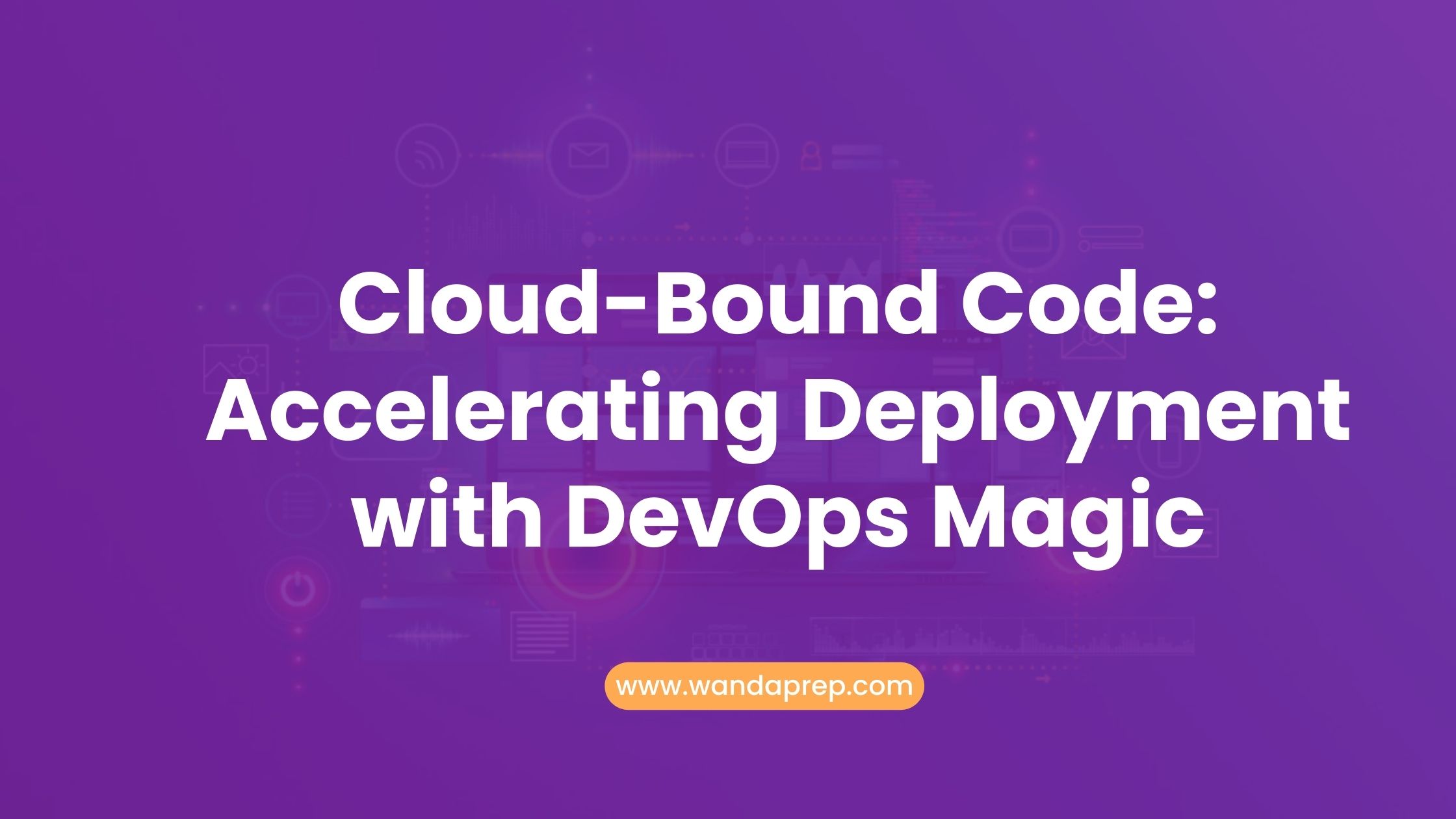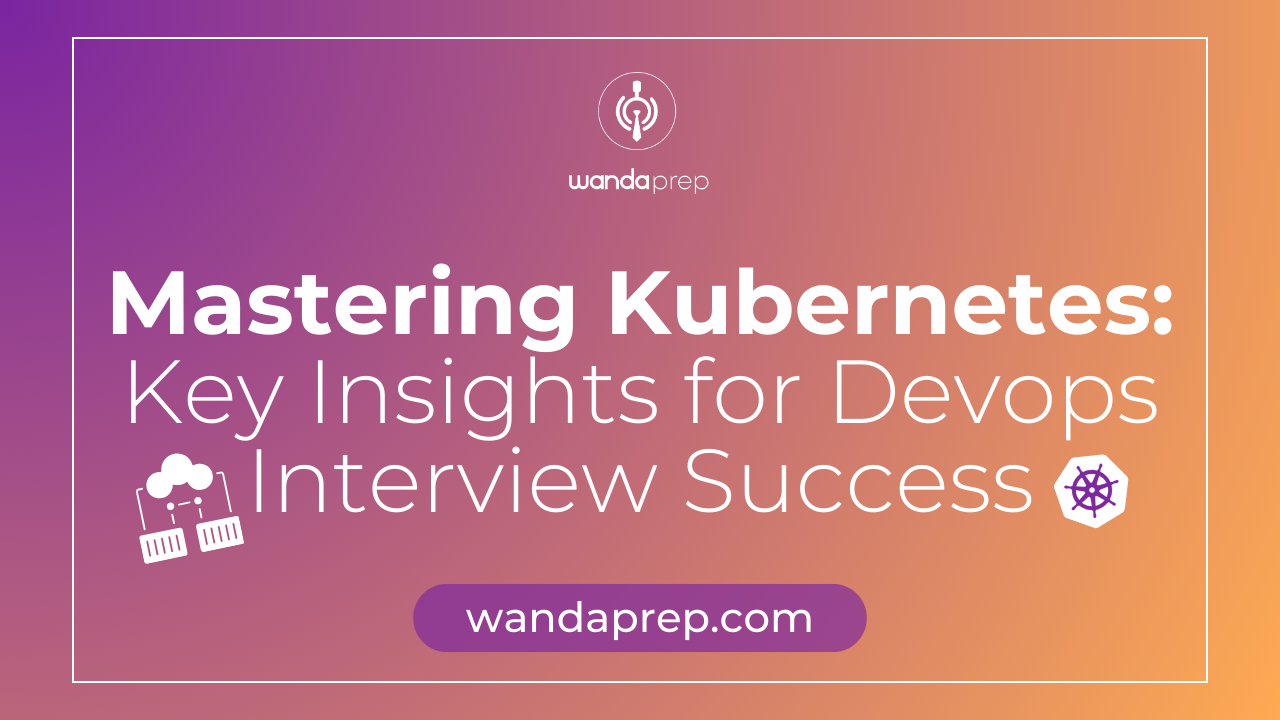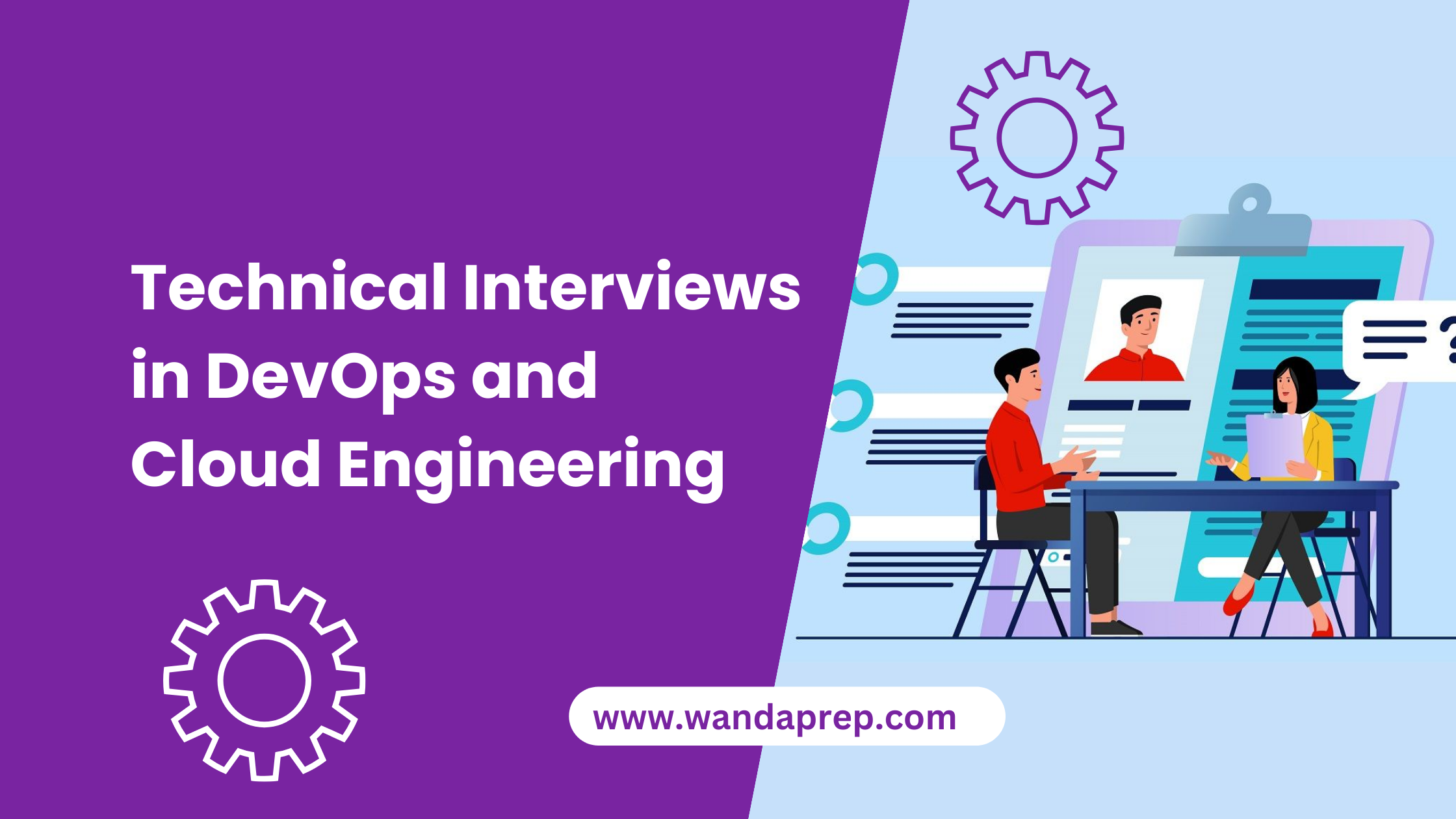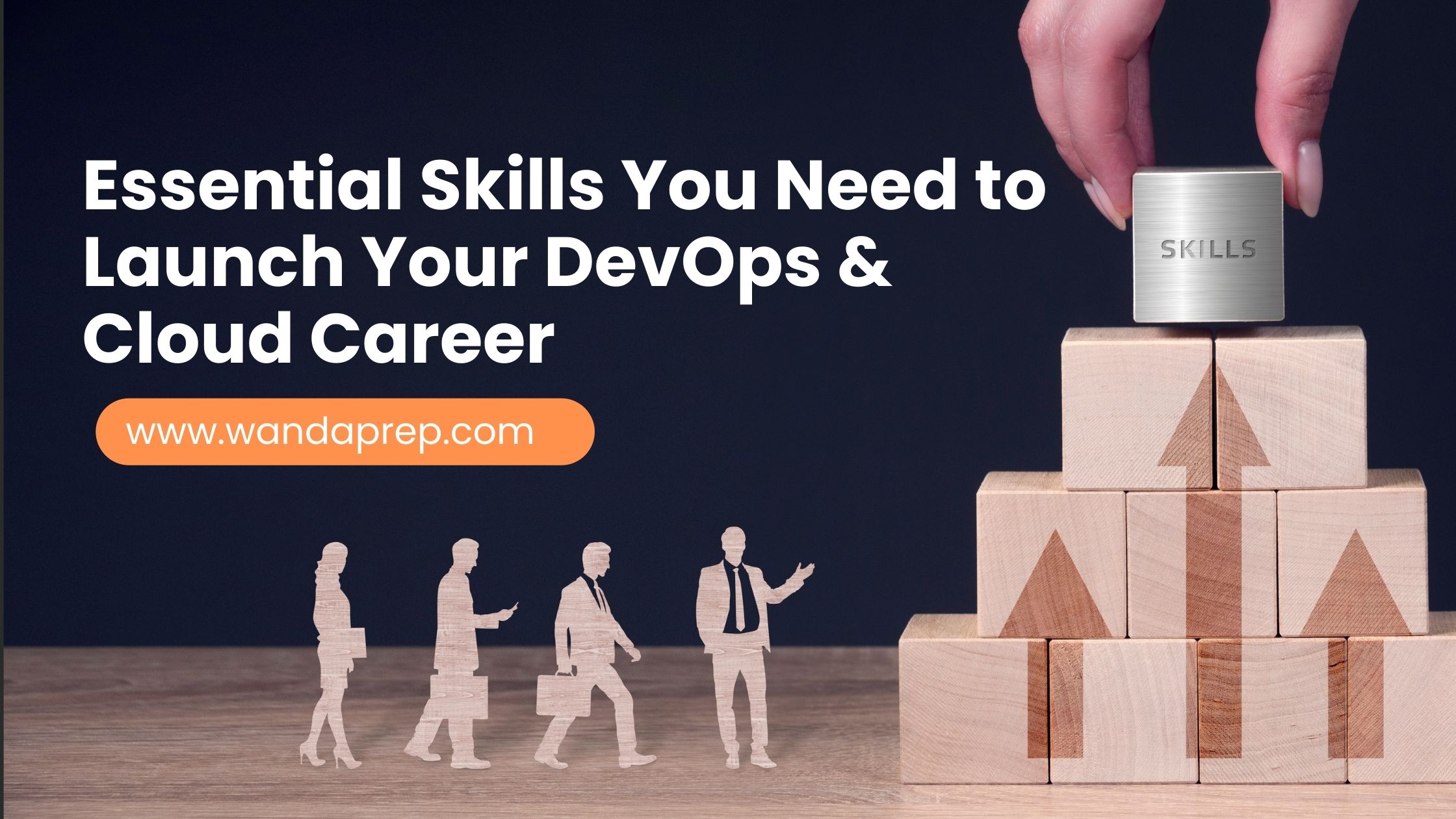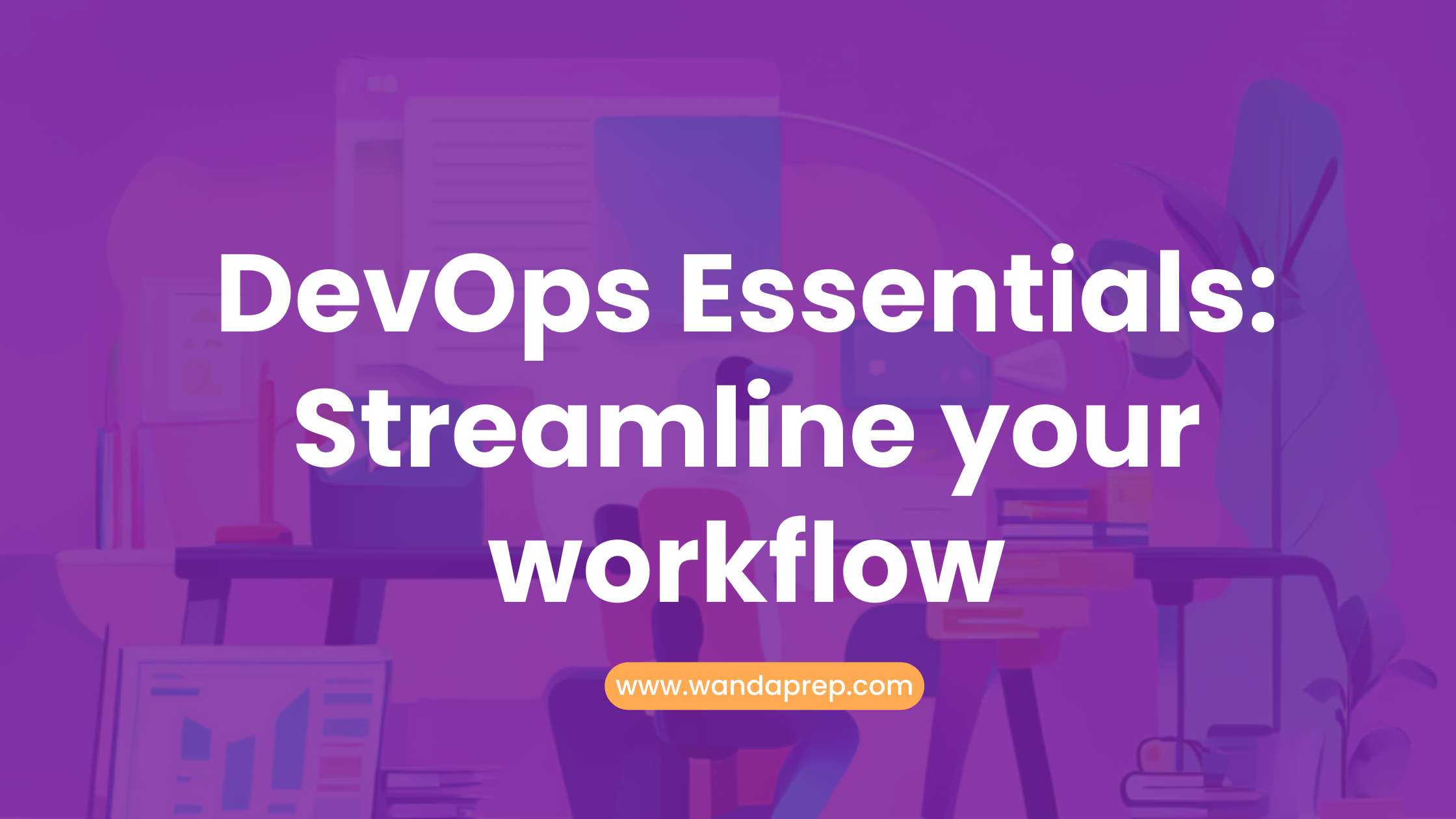Introduction
In today’s fast-paced software development landscape, DevOps plays a crucial role in bridging the gap between development and operations. As organizations strive for agility, efficiency, and reliability, DevOps engineers are in high demand. Whether you’re a seasoned professional or just starting your DevOps journey, acing interviews is essential for career growth.
In this comprehensive guide, we’ll explore the essential skills, scenario-based questions, and technical challenges that can help you succeed in your DevOps interviews.

Essential DevOps Skills
Version Control Systems (VCS):
- DevOps engineers should possess knowledge of version control systems like Git and SVN for managing and tracking changes in the codebase.
Continuous Integration/Continuous Deployment (CI/CD):
- Proficiency in CI/CD tools such as Jenkins is essential for automating software build, test, and deployment processes. Jenkins is designed for both internal and plugin extensions, supporting various programming languages and integrating with other tools like Git and Docker.
Infrastructure as Code (IaC):
- Familiarity with IaC tools like Terraform and Ansible is crucial for automating the provisioning and management of infrastructure resources, such as servers, networking, and storage.
Containerization:
- Understanding of containerization tools like Docker and Kubernetes is important for managing and deploying containerized applications.
Monitoring and Logging Tools:
- Knowledge of monitoring and logging tools such as Prometheus and the ELK stack is necessary for continuous monitoring and troubleshooting of production systems.
In addition to these technical skills, a DevOps engineer typically has a strong understanding of software development processes and techniques, as well as a deep knowledge of system administration and infrastructure management. This expertise is used to build and maintain a continuous integration and delivery pipeline, automate the deployment of software, and monitor and troubleshoot production systems.
Scenario-Based Interview Questions
Continuous Integration Pipeline
Designing an efficient CI pipeline for a complex application involves several key steps. Firstly, the pipeline should include automated testing at various stages to ensure the integrity of the codebase. This includes unit tests, integration tests, and possibly end-to-end tests. Additionally, the pipeline should incorporate static code analysis and security scanning to catch potential issues early in the development process. Furthermore, the use of container-based approaches using Docker and Kubernetes can enhance the efficiency and scalability of the CI pipeline. By containerizing the application and leveraging Kubernetes for orchestration, the CI pipeline can achieve greater consistency, portability, and resource utilization, leading to more reliable and efficient software delivery.
Infrastructure as Code (IaC)
Experiences with IaC tools such as Terraform and Ansible have demonstrated their significant benefits in terms of scalability and stability. By aligning development and operations teams through a DevOps approach, IaC ensures consistency and reproducibility in the deployment process across different environments, including production. This not only reduces errors and manual deployments but also supports a DevOps approach by applying the same testing and version control to the infrastructure code. Additionally, IaC removes the need to maintain individual deployment environments with unique configurations, ensuring that the production environment remains consistent. The use of IaC best practices, such as applying the same CI/CD pipeline to infrastructure as is done during software development, further enhances the scalability and stability of the infrastructure.
Incident Response
Handling critical incidents during major releases requires a structured and proactive approach. Firstly, it’s essential to have a well-defined incident response plan in place, outlining the roles and responsibilities of team members, communication protocols, and escalation procedures. During a critical incident, swift identification and containment of the issue are crucial, followed by thorough post-mortem analysis to understand the root cause and impact. Implementing preventive measures based on the findings of post-mortems is essential to mitigate similar incidents in the future. This may involve improvements in monitoring, automated testing, and deployment processes, as well as enhancing the resilience of the system architecture.
Container Orchestration
Managing container orchestration at scale, particularly in terms of high availability and resource utilization, requires a deep understanding of containerization technologies and orchestration platforms. Kubernetes, as a leading container orchestration platform, offers robust features for managing high availability, such as pod replication and automatic scaling. Additionally, effective resource utilization can be achieved through Kubernetes’ resource management capabilities, including resource quotas and limits. Furthermore, the use of advanced networking features and load balancing in Kubernetes can contribute to efficient container orchestration at scale.
These scenarios not only assess technical knowledge but also require problem-solving abilities and a comprehensive understanding of DevOps principles and practices.
Communication and Thought Process
During interviews, articulating thought processes is crucial as it not only demonstrates problem-solving abilities but also showcases effective communication skills. Here are some tips to effectively communicate and showcase problem-solving skills during interviews:
Reflect on Your Thought Process:
When faced with a challenging problem, be mindful of your thought processes. Consider whether your initial reaction is to panic or if you approach the problem with calm enthusiasm. Reflect on whether the problem hinders your focus on other tasks and whether you tend to view the problem as a whole or break it down.
Identify Personal Strengths:
Reflect on activities you enjoy and that come naturally to you. Consider the underlying components that make these experiences enjoyable and identify shared skills or patterns among them. Additionally, think back to times when people admired specific qualities in you, such as communication skills or problem-solving abilities.
Communication Skills:
Effective communication is essential during interviews. It’s important to appear confident by making eye contact, sitting up straight, and preparing ahead of time to ensure polished thoughts and articulate responses.
Interpersonal Skills:
Emphasize your interpersonal skills during the interview process, particularly in customer-facing roles where problem-solving and clear communication are crucial.
Improve Articulation:
Practice articulating your thoughts clearly and strategically using pauses to emphasize points and organize your thoughts before responding. Additionally, identify and practice challenging words or sounds to improve articulation.
Overcoming Communication Barriers:
Learn important skills to communicate more clearly and effectively, which can deepen connections, build trust, improve teamwork, and enhance problem-solving abilities.
By effectively articulating thought processes, showcasing problem-solving skills, and demonstrating strong communication abilities, candidates can stand out during interviews and increase their chances of success.

Conclusion
In summary, Mastering DevOps skills and preparing for interview scenarios are essential steps in a successful DevOps journey. Continuous practice, staying updated with industry trends, and approaching interviews with confidence are key factors in achieving success. Good luck on your DevOps journey, and remember that ongoing learning and growth are essential in the dynamic field of DevOps! If you have any more questions or need further assistance, feel free to ask.


